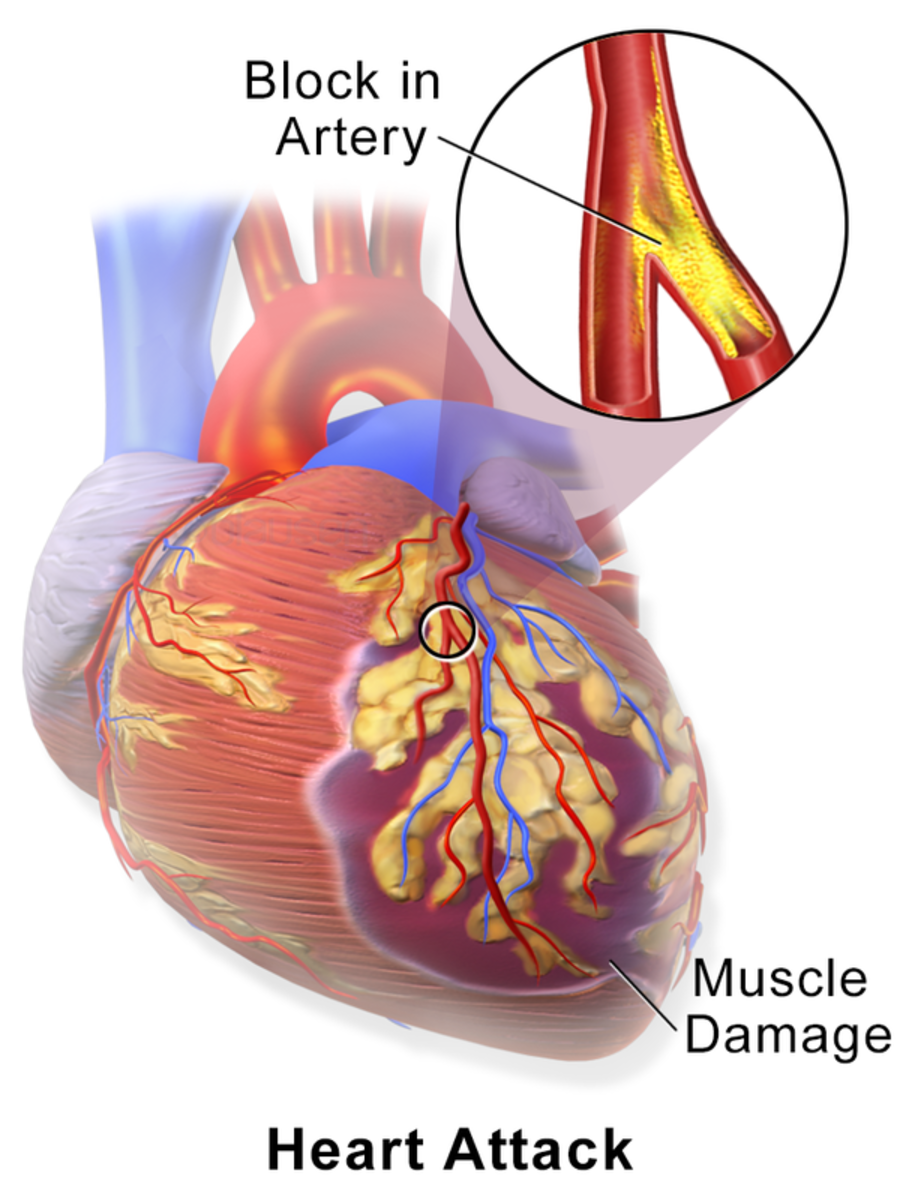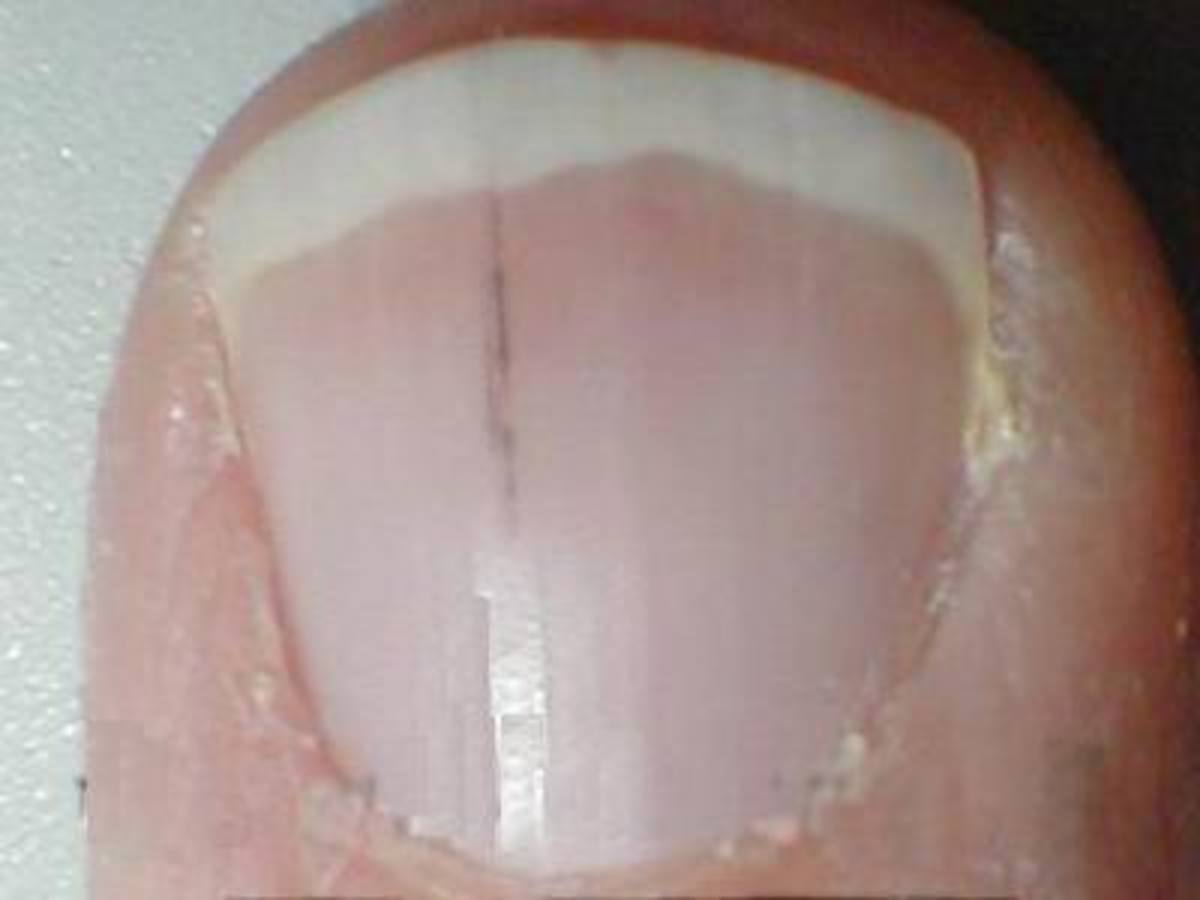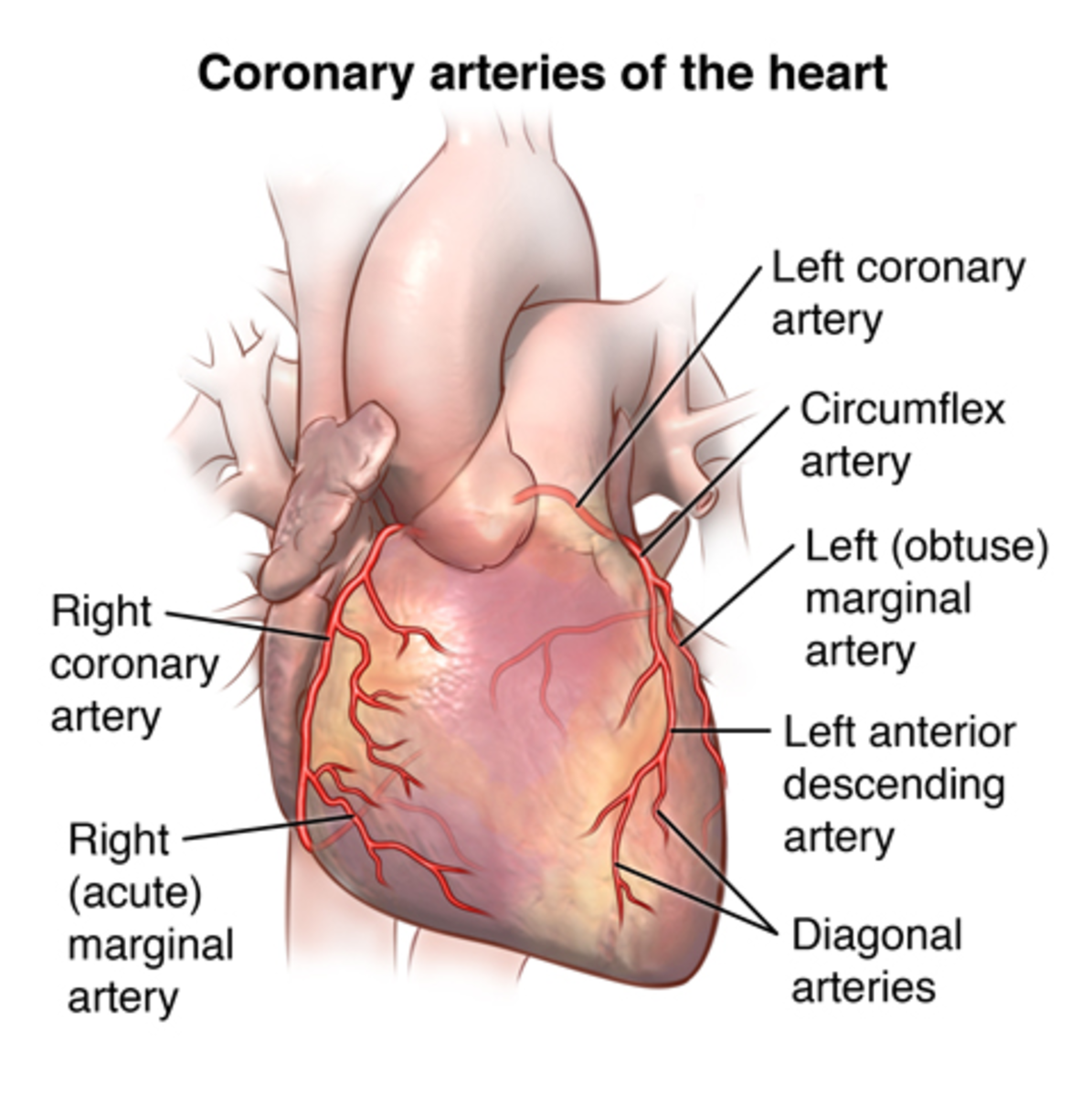How to Reduce the Risk of Heart Attacks
Heart Attack - The Sudden, Often Unexpected Killer
Heart attack - that happens to old people right? That's the reaction or perception most people have about heart attacks. Unfortunately, more and more young people are dying of heart attacks, and so if you think only old people are at risk, you couldn't be more wrong. I've known a couple of friends personally who've had heart attacks in their late 20s and early 30s. It was shocking and frightening to know that people so young could get heart attacks too. It was an eye opener for me. Like so many others, I believed heart attacks could happen only to the old. Now, though, I know better. Having friends go through this, one is shaken out of one's complacence to learn more about the various risk factors for heart attack and make necessary changes to one's own life to reduce the risks. Turns out that the first and most important step you can take to lower your risk of getting a heart attack is to make lifestyle modifications. So, what are these "lifestyle modifications?" Let us discuss some of them.

Lifestyle Modifications - Heart Attack Prevention Steps
Say no to smoking: If you are a smoker, quit!! Can't put it more bluntly than that. Nicotine is a true nemesis of the heart. It makes the heart work harder, can lead to higher amounts of fatty deposition in the arteries and consequent narrowing of the blood vessels. Second-hand smoking is just as bad, so try to avoid places where you can be exposed to secondhand smoke. One of my friends, who suffered a heart attack, was a smoker (he was just 28), he starting smoking when he was 16, so I'd definitely take this warning seriously, so should you!! He had no other risk factors I know of and it probably was the smoking that was to blame. Either ways, would you really want to risk it? It is never too late to quit smoking!!
Watch your diet: Watch what you eat. You are what you eat, and if you put junk in your body, you can't expect your heart to work like a well-oiled machine. Eating a heart-healthy diet is the key. This means you eat a diet that is low in saturated fats and cholesterol and high in fruits, whole grains and veggies and healthy oils such as fish oil that you can get by eating oily fish such as tuna, salmon, herring, mackerel. Eating such a diet would help lower your cholesterol levels, blood pressure and weight, all of which are risk factors for heart attack. By adhering to a heart-healthy diet you can decrease your chance of getting a heart attack quite significantly.
Get up and get moving: Yes, exercise is key. Strive to get at least 30 minutes of an aerobic workout every day. You can also walk briskly or do other exercises that require you to be active continuously for a period of time.
Shed those excess pounds: If you are overweight or obese, you really need to lose some pounds. Obesity is another risk factor for heart attacks and so it pays to shed those excess pounds. Eat lower calories than you usually do. Aim for a body-mass index (BMI) of less than 25. A BMI of 25 or greater increases your risk of heart attack. To know your BMI, just refer to the BMI chart given below. A BMI of less than 18.5 is considered underweight, a BMI of between 18.5 to 24.9 is considered normal and acceptable, a BMI of 25 to 29.9 is considered overwight, whereas a BMI value over 30 is considered obese.
Body Mass Index (BMI) Table For BMI Values Till 35
BMI
| 19
| 20
| 21
| 22
| 23
| 24
| 25
| 26
| 27
| 28
| 29
| 30
| 31
| 32
| 33
| 34
| 35
|
Height
| Body Weight (pounds)
| ||||||||||||||||
(inches)
| |||||||||||||||||
58
| 91
| 96
| 100
| 105
| 110
| 115
| 119
| 124
| 129
| 134
| 138
| 143
| 148
| 153
| 158
| 162
| 167
|
59
| 94
| 99
| 104
| 109
| 114
| 119
| 124
| 128
| 133
| 138
| 143
| 148
| 153
| 158
| 163
| 168
| 173
|
60
| 97
| 102
| 107
| 112
| 118
| 123
| 128
| 133
| 138
| 143
| 148
| 153
| 158
| 163
| 168
| 174
| 179
|
61
| 100
| 106
| 111
| 116
| 122
| 127
| 132
| 137
| 143
| 148
| 153
| 158
| 164
| 169
| 174
| 180
| 185
|
62
| 104
| 109
| 115
| 120
| 126
| 131
| 136
| 142
| 147
| 153
| 158
| 164
| 169
| 175
| 180
| 186
| 191
|
63
| 107
| 113
| 118
| 124
| 130
| 135
| 141
| 146
| 152
| 158
| 163
| 169
| 175
| 180
| 186
| 191
| 197
|
64
| 110
| 116
| 122
| 128
| 134
| 140
| 145
| 151
| 157
| 163
| 169
| 174
| 180
| 186
| 192
| 197
| 204
|
65
| 114
| 120
| 126
| 132
| 138
| 144
| 150
| 156
| 162
| 168
| 174
| 180
| 186
| 192
| 198
| 204
| 210
|
66
| 118
| 124
| 130
| 136
| 142
| 148
| 155
| 161
| 167
| 173
| 179
| 186
| 192
| 198
| 204
| 210
| 216
|
67
| 121
| 127
| 134
| 140
| 146
| 153
| 159
| 166
| 172
| 178
| 185
| 191
| 198
| 204
| 211
| 217
| 223
|
68
| 125
| 131
| 138
| 144
| 151
| 158
| 164
| 171
| 177
| 184
| 190
| 197
| 203
| 210
| 216
| 223
| 230
|
69
| 128
| 135
| 142
| 149
| 155
| 162
| 169
| 176
| 182
| 189
| 196
| 203
| 209
| 216
| 223
| 230
| 236
|
70
| 132
| 139
| 146
| 153
| 160
| 167
| 174
| 181
| 188
| 195
| 202
| 209
| 216
| 222
| 229
| 236
| 243
|
71
| 136
| 143
| 150
| 157
| 165
| 172
| 179
| 186
| 193
| 200
| 208
| 215
| 222
| 229
| 236
| 243
| 250
|
72
| 140
| 147
| 154
| 162
| 169
| 177
| 184
| 191
| 199
| 206
| 213
| 221
| 228
| 235
| 242
| 250
| 258
|
73
| 144
| 151
| 159
| 166
| 174
| 182
| 189
| 197
| 204
| 212
| 219
| 227
| 235
| 242
| 250
| 257
| 265
|
74
| 148
| 155
| 163
| 171
| 179
| 186
| 194
| 202
| 210
| 218
| 225
| 233
| 241
| 249
| 256
| 264
| 272
|
75
| 152
| 160
| 168
| 176
| 184
| 192
| 200
| 208
| 216
| 224
| 232
| 240
| 248
| 256
| 264
| 272
| 279
|
76
| 156
| 164
| 172
| 180
| 189
| 197
| 205
| 213
| 221
| 230
| 238
| 246
| 254
| 263
| 271
| 279
| 287
|
Diabetes: If you have diabetes, monitor your blood sugar levels and keep it under check.
Don't Skip Your Medications: If your doctor has prescribed you medications for your heart/blood pressure, take them regularly and without fail. Skipping them could prove costly
Drink Moderately: Heavy drinkers are at an increased risk for suffering from heart attacks. If you do drink, then drink so moderately. Consult your doctor on what that "moderate" amount can be for your specific situation. Generally, this would mean about one drink per day for women and two drinks per day for men.
Get Screened Regularly: Get your cholesterol and lipid levels checked and your blood pressure monitored regularly.
Plan for an Emergency: Discuss an action plan with your family if you were to have a heart attack. Each passing second could mean the difference between life and death, so have a plan of action ready in case you were to have an attack. Educate your family members about the signs and symptoms of a heart attack so they can identify them and call 911 without undue delay.










